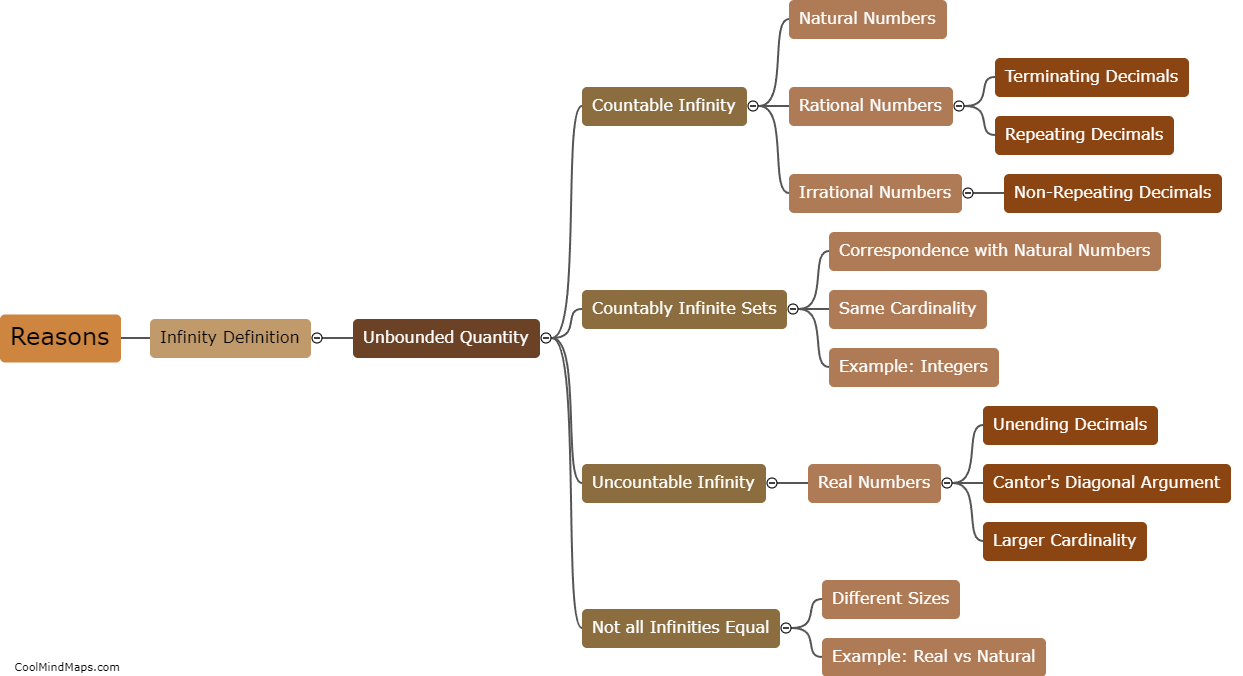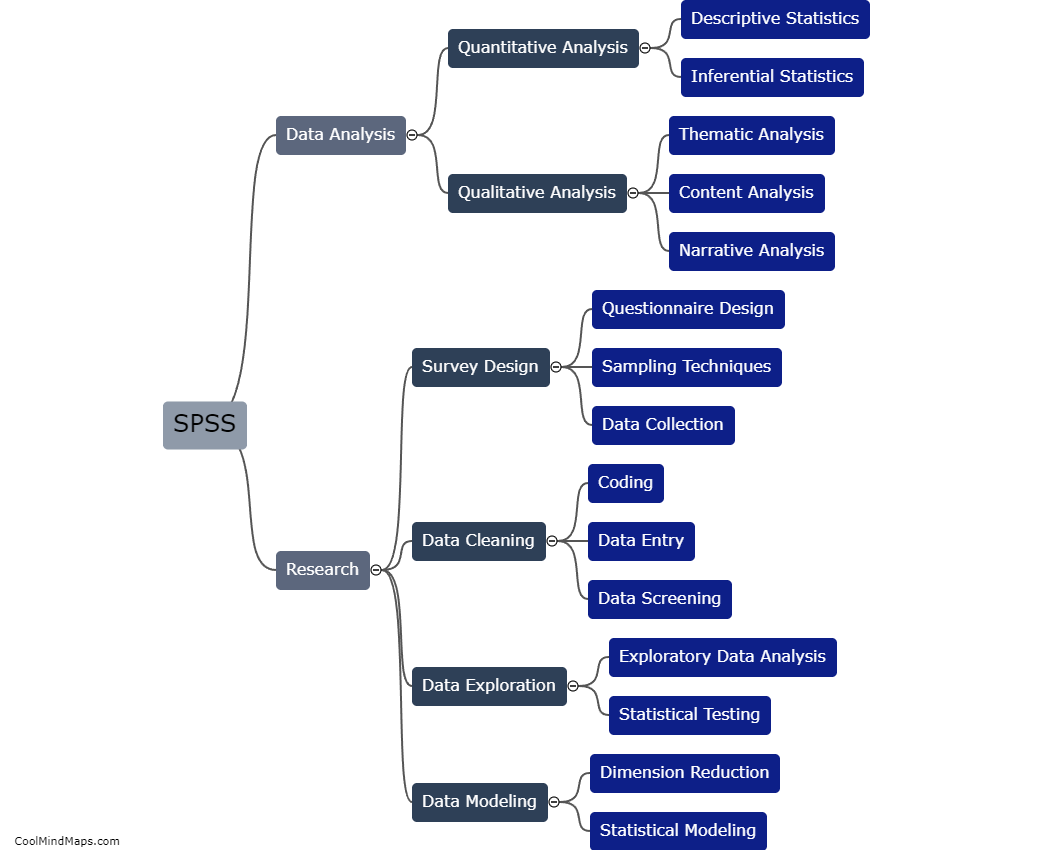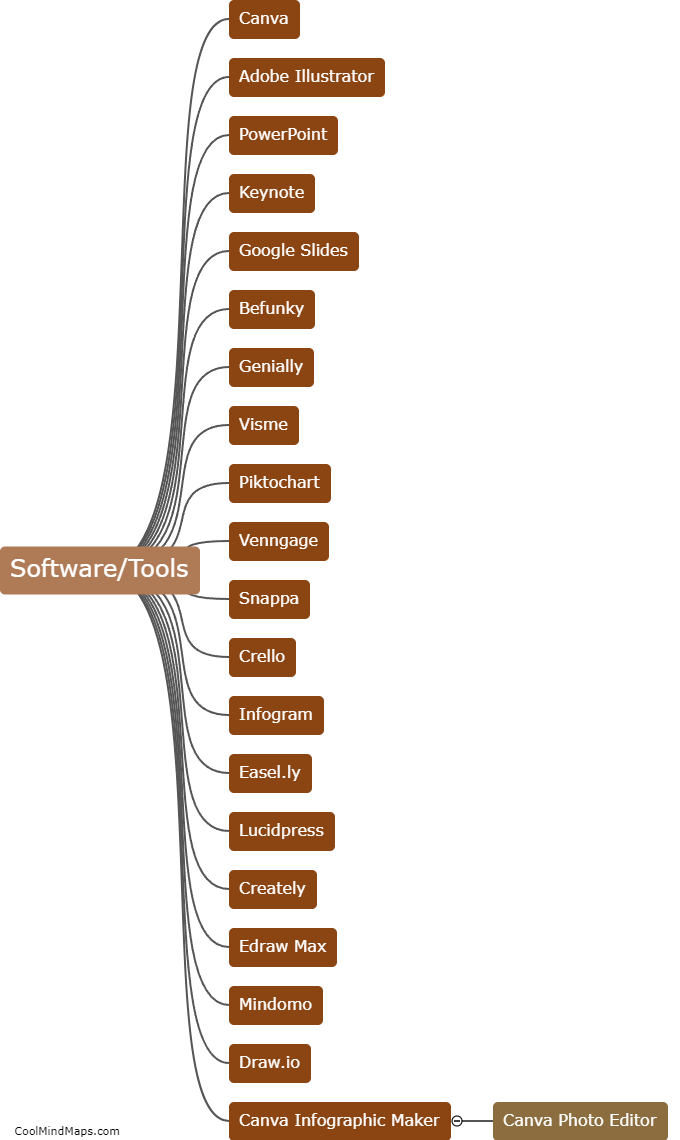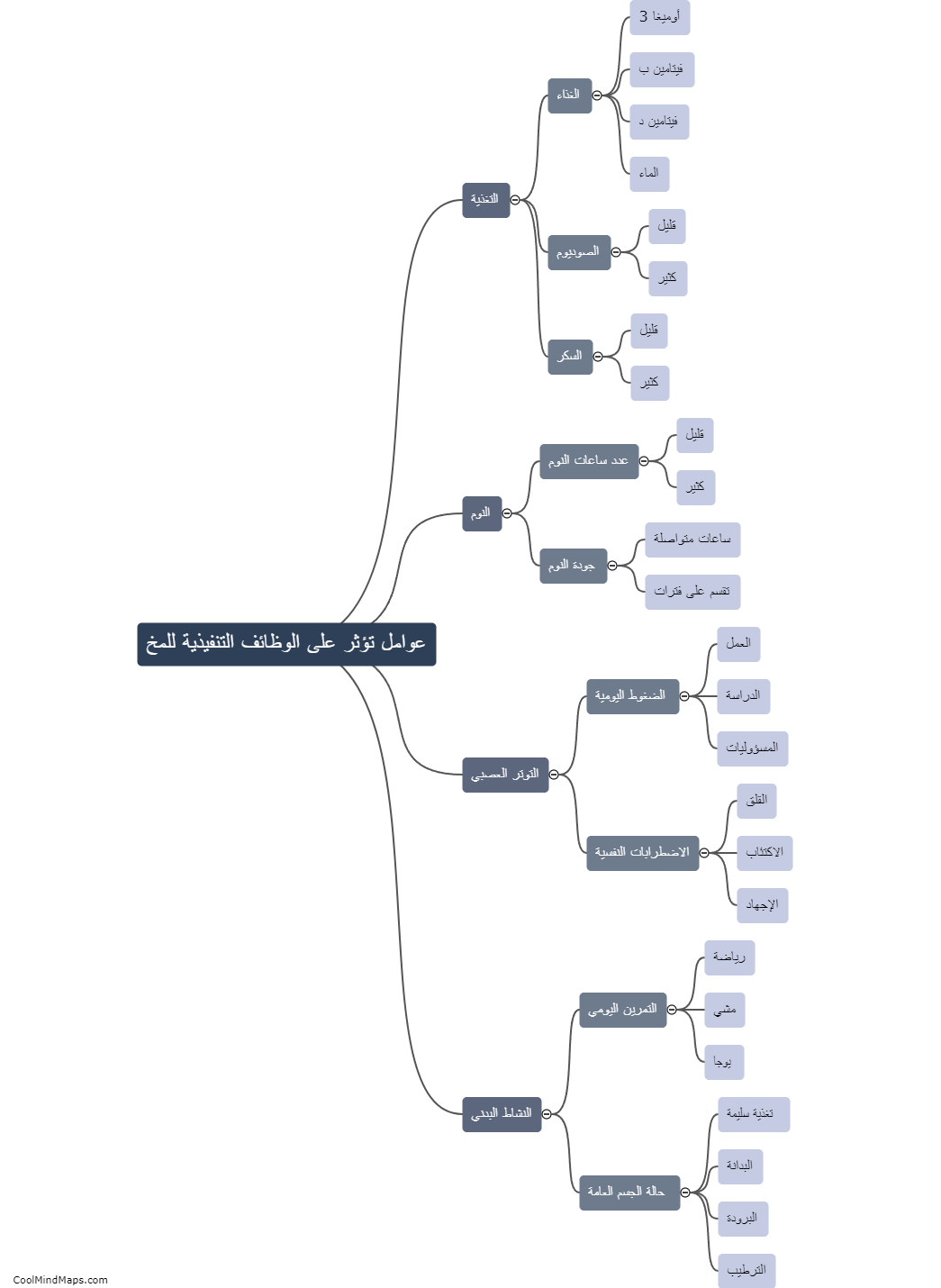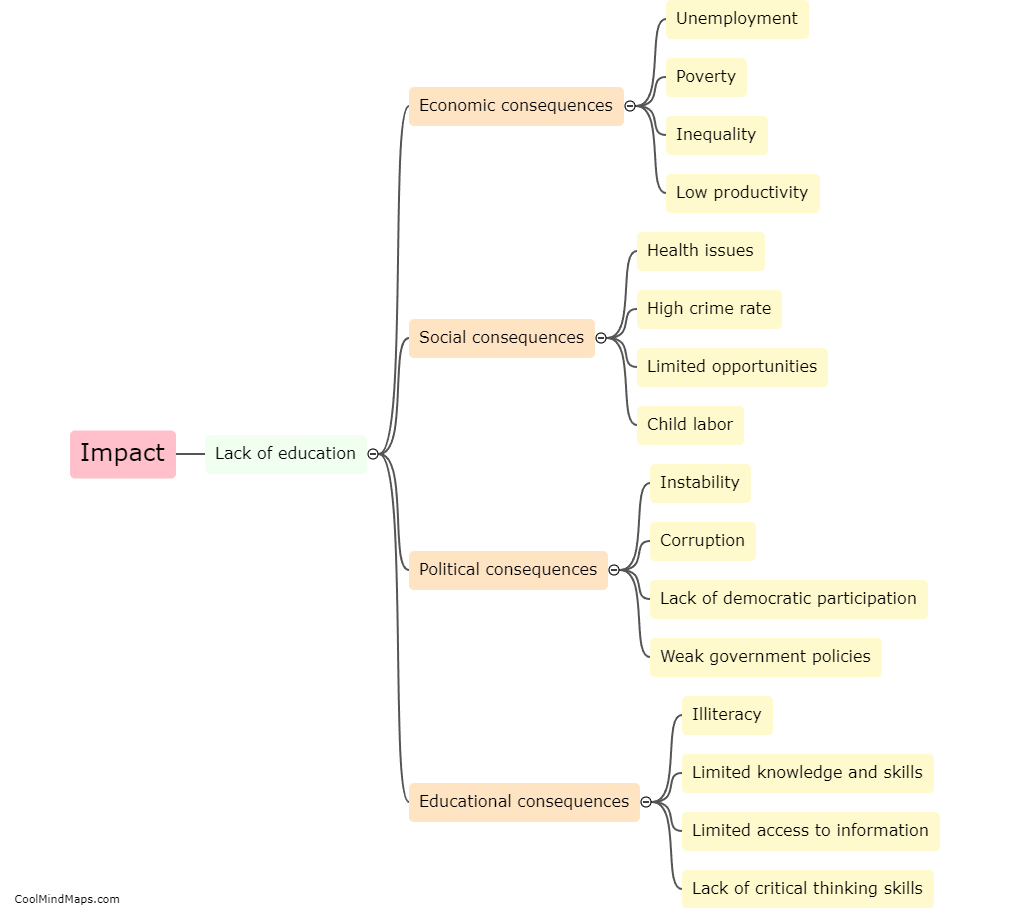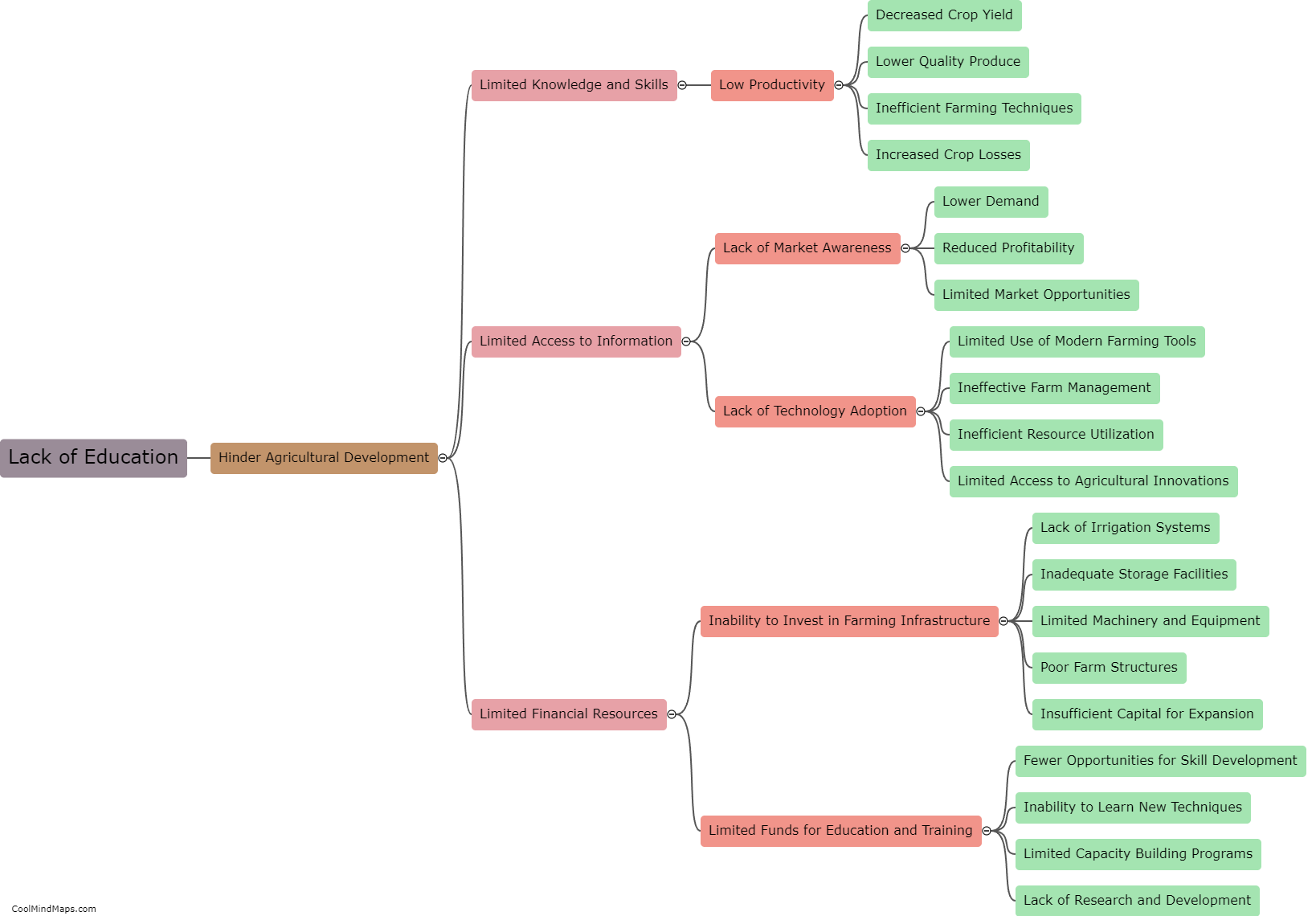How does inadequate irrigation contribute to food insecurity?
Inadequate irrigation, or the lack of proper water supply and distribution in agricultural systems, significantly contributes to food insecurity. Irrigation plays a critical role in crop production by supplying water to plants, particularly in regions with limited rainfall. Insufficient or poorly managed irrigation can lead to decreased crop yields, crop failure, and loss of income for farmers. This not only affects the availability of food but also leads to higher food prices, making it difficult for vulnerable populations to access nutritious and affordable food. Inadequate irrigation exacerbates food insecurity by reducing agricultural productivity, increasing vulnerability to climate change, and perpetuating a cycle of poverty and hunger in many developing countries.
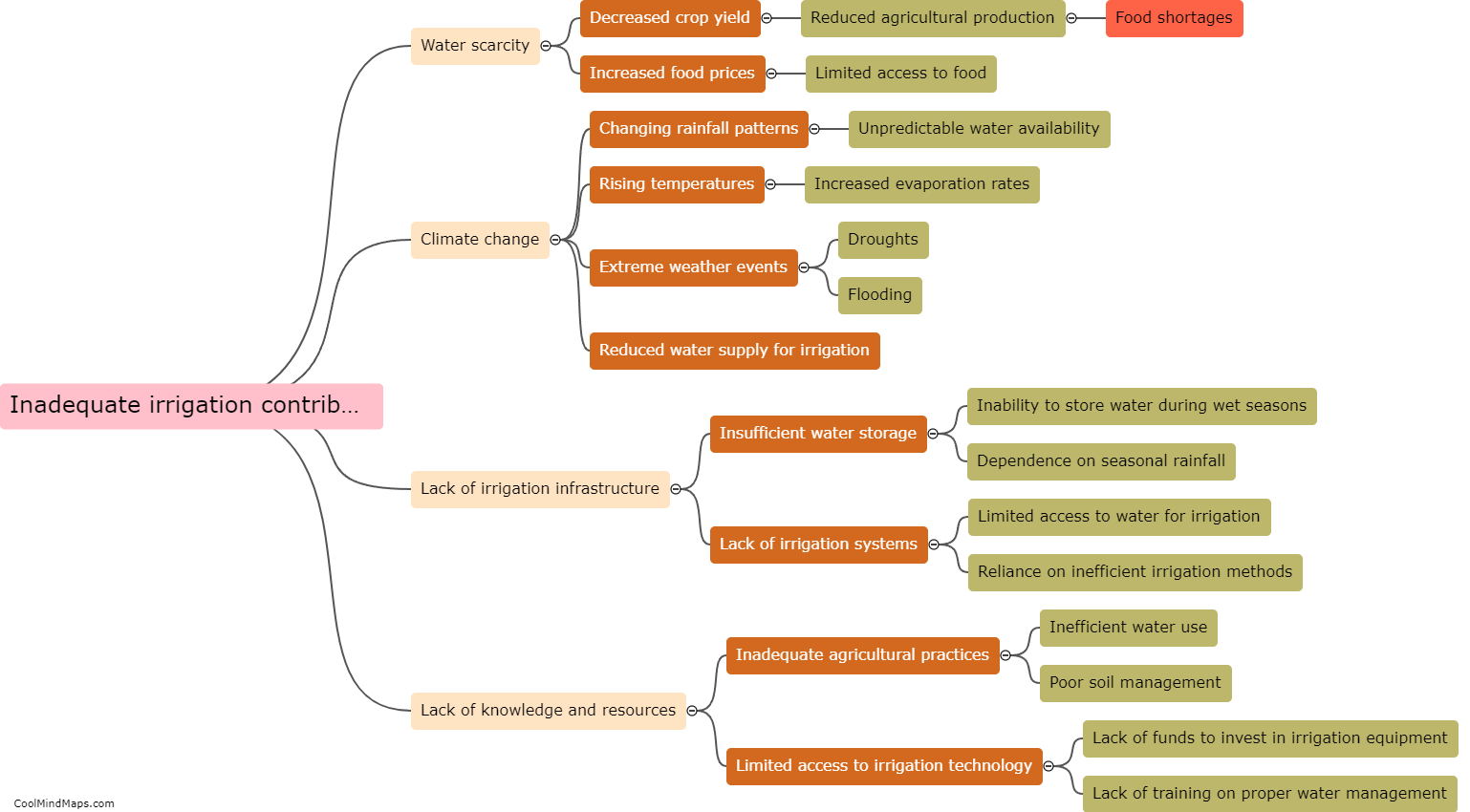
This mind map was published on 1 September 2023 and has been viewed 116 times.
